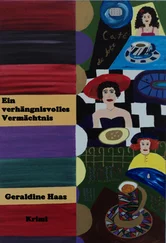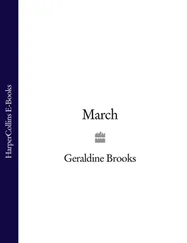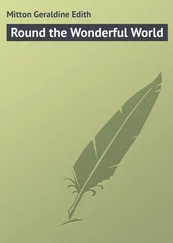Bucket in hand, I leave the cottage by the front door, for in the mornings I feel more able to meet whomever might be abroad. We live all aslant here, on this steep flank of the great White Peak. We are always tilting forwards to toil uphill, or bracing backwards on our heels to slow a swift descent. Sometimes, I wonder what it would be like to live in a place where the land did not angle so, and people could walk upright with their eyes on a straight horizon. Even the main street of our town has a camber to it, so that the people on the uphill side stand higher than those on the downhill.
Our village is a thin thread of dwellings, unspooling east and west of the church. The main road frays here and there into a few narrower paths that lead to the mill, to Bradford Hall, the larger farms, and the lonelier crofts. We have always built here with what we have to hand, so our walls are hewn of the common grey stone and the roofs thatched with heather. Behind the cottages on either side of the road lie tilled fields and grazing commons, but these end abruptly in a sudden rise or fall of ground: the looming Edge to the north of us, its sheer stone face sharply marking the end of settled land and the beginning of the moors, and to the south, the swift, deep dip of the Dale.
It is a strange prospect, our main street these days. I used to rue its dustiness in summer and muddiness in winter, the rain all rizen in the wheel ruts making glassy hazards for the unwary stepper. But now there is neither ice nor mud nor dust, for the road is grassed over, with just a cow-track down the centre where the slight use of a few passing feet has worn the weeds down. For hundreds of years, the people of this village pushed Nature back from its precincts. It has taken less than a year to begin to reclaim its place. In the very middle of the street, a walnut shell lies broken, and from it, already, sprouts a sapling that wants to grow up to block our way entire. I have watched it from its first seed leaves, wondering when someone would pull it out. No one has yet done so, and now it stands already a yard high. Footprints testify that we are all walking round it. I wonder if it is indifference, or whether, like me, others are so brimful of endings that they cannot bear to wrench even a scrawny sapling from its tenuous grip on life.
I made my way to the rectory gate without meeting any soul. So my guard was down and I was unready to face the person who, in all the world, I least wished to see. I had entered the gate and had my back turned to the house, refastening the latch, when I heard the rustle of silk behind me. I turned suddenly, slopping milk from my bucket as I did so. Elizabeth Bradford scowled as a droplet landed on the aubergine hem of her gown. ‘Clumsy!’ she hissed. And so I reencountered her much as I had last seen her more than one year earlier; sour-faced and spoiled. But the habits of a lifetime are hard-shed, and I had dropped into a curtsy without willing it, my body acting despite the firm resolve of my mind to show this woman no such deference.
Typically, she did not even bother with a greeting. ‘Where is Mompellion?’ she demanded. ‘I have been rapping upon that door for a good quarter hour. Surely he cannot be so early abroad?’
I made my voice unctuously polite. ‘Miss Bradford,’ I said, ignoring her question, ‘it is a great surprise, and an honour unlooked for, to see you here in our village. You left us in such haste, and so long since, that we had despaired of ever more being graced by your presence.’
Elizabeth Bradford’s pride was so overweening and her understanding so limited that she heard only the words and missed the tone. ‘Indeed.’ She nodded. ‘My parents were well aware that our departure would leave an unfillable gap here. They have always felt their obligations most keenly. It was, as you know, that sense of obligation that caused them to remove us all from Bradford Hall, to preserve the health of our family so that we could continue to fulfil our responsibilities. Surely Mompellion read my father’s letter to the parish?’
‘He did,’ I replied. I did not add that he had used it as an occasion to preach one of the most incendiary sermons we ever had from him.
‘So, where is he? I have been kept waiting long enough already, and my business is urgent.’
‘Miss Bradford, I must tell you that the rector sees no one at present. The late events in this place, and his own grievous loss, have left him exhausted and quite unequal to shouldering the burdens of the parish at this time.’
‘Well, that may be, insofar as the normal run of parishioners is concerned. But he does not know that my family is returned here. Be so good as to inform him that I require to speak with him at once.’
I saw no purpose in further discourse with this woman. And I have to own that I was consumed with curiosity to see if the news of the Bradfords’ return would rouse Mr. Mompellion, or draw forth any sign of feeling. Perhaps wrath could rouse him where charity had not. Perhaps he needed to be singed by just such a brand.
I swept by her and walked on ahead to open the rectory’s great door. She pinched her face at this; she was not accustomed to sharing a doorway with servants, and I could see she had expected me to pass to the kitchen garth and then come and let her in with accustomed ceremony. Well, times had changed in the Bradfords’ absence, and the sooner she accustomed herself to the inconveniences of the new era the better.
She pushed past me and found her own way to the parlour, pulling off her gloves and flicking them impatiently against the palm of her hand. I saw the surprise in her face as she registered the bareness of the room, stripped as it was of all its former comforts. I went on to the kitchen. No matter how urgent her business, she would have to wait until Mr. Mompellion broke his fast, since that scant serving of oatcake and brawn was the only meal I knew with any certainty that he would take. She was pacing, barely able to contain herself, as I passed by some minutes later with the laden tray. I glimpsed her through the open door. Her brow was drawn so low, her scowl so deep, that she looked as if someone had grabbed her face from beneath and dragged it groundwards. Upstairs, I took a minute to compose myself before I knocked on the door. I did not want to say, or look, more than I should when I announced to the rector his caller.
‘Come,’ he said. He was standing by the window when I entered, and the shutters, for once, were opened. His back was to me as he spoke. ‘Elinor would be sorry to see what has become of her garden,’ he said.
I did not know at first how to answer that. To speak the evident truth – yes, indeed, she would – seemed likely only to feed his gloom. To deny his proposition would be a falsehood.
‘I expect she would understand why it is so,’ I said, bending to set out the dishes from his tray. ‘And even if we had hands enough to do the ordinary tasks – to pull the weeds and prune the dead-wood – yet it would not be her garden. We would lack her eye. What made it her garden was the way she could look at a handful of tiny seeds in the bareness of winter and imagine how they would be, months later, sunlit and in flower. It was as if she painted with blooms.’
When I straightened, he had turned and was staring at me. The shock of it went through me once again.
‘You knew her!’ He said it as if it had only just come to him.
To cover my confusion, I blurted out what I had hoped to convey with care. ‘Miss Bradford is in the parlour. The family is returned to the Hall. She says she needs to speak with you urgently.’
What happened next astonished me so much that I almost dropped the tray. He laughed. A rich, amused laugh the like of which I hadn’t heard for so long I’d forgotten the sound of it.
Читать дальше












